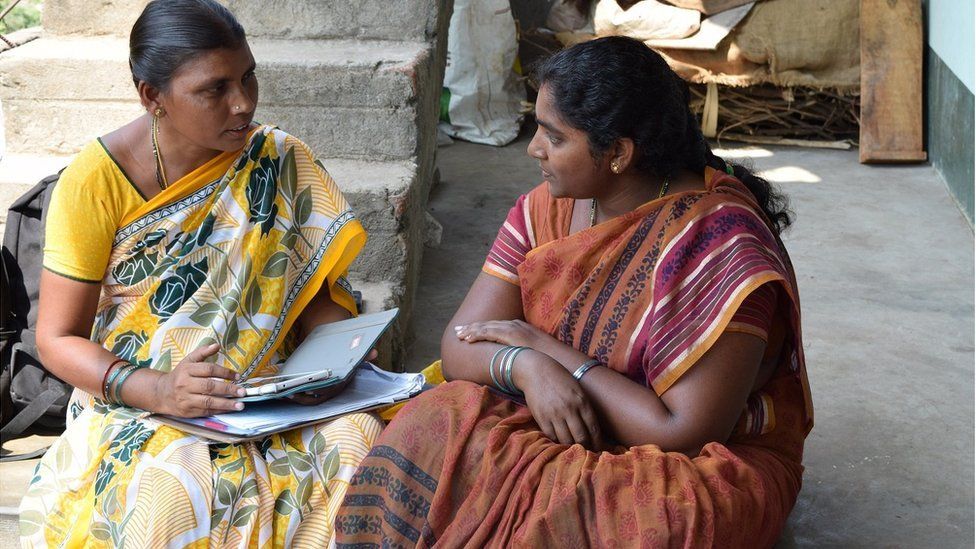Phone app 'bridges treatment gap'
- Published

Millions of people around the world are affected by common mental disorders such as depression, emotional stress and suicidal tendencies at some point in their life. Even in the most developed nations, these conditions can go untreated and in some cases, undiagnosed.
The so-called "treatment gap" - where people needing treatment do not get it - is particularly large in India.
In some rural areas there is often just one doctor looking after up to 30,000 people. The doctors are not always psychiatrists and, although they are trained in mental health disorders, they don't always know how to treat these conditions.
But in Andhra Pradesh, one project is trying to circumvent the need for more doctors, by using existing health resources to identify potential patients through a mobile-based app.
The SMARTmh system uses female health workers or Accredited Social Health Activists (ASHAs), to screen people in rural villages in West Godavari district.
ASHAs are government health workers trained to educate and promote health in their communities. Their primary role is to support the government programme on maternal and child health, and also help communities with first aid and sanitation.
But researchers at The George Institute for Global Health India have given them another task - to ask people in villages a series of questions to screen for mental health.
Siddhardha Devarapalli, who is part of the team, said: "Local health activists are known to the people and because of the stigma attached to mental health issues, people will be open to the activists and so they will share".
The health workers use a questionnaire developed by the World Health Organization (WHO). They input the answers into the app that then gives them a result, determining whether the person should be referred to a doctor or not.
The doctor then uses another app to diagnose the patient, and draws up a treatment plan. The ASHAs support the patients during their hospital visits and they also follow up with them to make sure they're taking their medication, if required.
The George Institute has screened 22,000 people in 42 villages in West Godavari. The SMARTmh system has found 5% of the population needs clinical intervention.
Almost all of the patients needing help have never had their condition identified in the past.
Kannan Krishnaswamy, of the George Institute, said: "This is not just an innovation in technology, it is an innovation in process."
For patients like Israyelu Pendem, the system has been a lifesaver. There was a time when he felt he could not go on.
"I was mentally depressed, sleepless, I lost my appetite. I was restless and unstable. I felt that I should leave this world," said Israyelu.
Israyelu lives in a small village in West Godavari. And although he did visit a doctor during the two years he suffered from his symptoms, the treatment did not help him.
A few months ago an ASHA came to his doorstep and asked him some questions. He was referred to a doctor through the SMARTmh system and was eventually diagnosed with depression.
"I was counselled and that motivated me a lot. With that I gained confidence," said Israyelu.
Out of 100 people needing mental health care in India, only 25 receive it. There are many reasons or this gap including low awareness and a lack of trained mental health professionals. Stigma and social beliefs surrounding mental disorders also play a role.
"Common mental disorders were hardly recognised in these parts. They were not even identified as health problems. Many people used to think that it's because of karma or because of some supernatural powers," said Devarapalli.
Such beliefs, Devarapalli says, prevent patients from coming forward or pursuing treatment.
The plan is to expand the system to cover other easily treatable conditions, like blood pressure and diabetes.
Researchers hope eventually a medical mobile platform will guide local doctors and health workers in rural areas to diagnose and give treatments for many conditions.
And by using new technology and training local healthcare workers, they want to be able to improve the health of people living in the most remote parts of India and maybe one day, the world.